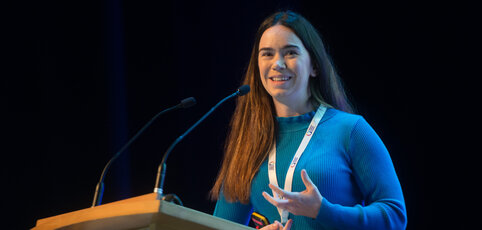Warning: So-called cures and dodgy interventions
The page warns about dodgy therapies and products being promoted, usually online, which are potentially harmful or even life threatening. It also has:
- information about the recent Westminster Commission on Autism report on harmful interventions
- advice on how to make sure vulnerable autistic people and families don’t fall for dubious claims, including how to report any concerns.
-
Three dangerous products in particular have been peddled as 'cures' for autism:- GcMAF, an unlicensed blood product
- MMS, a bleach banned for human consumption
- CEASE, a 'therapy' without any scientific credibility which discourages vaccinations and recommends potentially dangerous levels of nutritional supplements.
Do not use these products in any circumstances. They have no benefit and could be very harmful.

The Medicines and Healthcare Regulatory Agency say you should not use GcMAF or MMS. The Food Standards Agency have also warned against using MMS. These authorities continue to investigate people selling these products.
The Advertising Standards Authority issued an Enforcement Notice in March 2019 to the 150 ‘CEASE therapists’ they believe are operating in the UK. This sets out clearly that they cannot make direct or implied efficacy claims in their ads, including on their own websites. They have also made clear that failure to do this will lead to further sanctions and potentially prosecution by Trading Standards.
There is no proper scientific evidence of any kind that any products or therapies 'cure' autism.
Autism is lifelong. It is not a disease or an illness and many autistic people feel that their autism is a core part of their identity. It is deeply offensive for anyone to claim that unproven and even harmful therapies and products can ‘cure’ autism. It is reprehensible that anyone could profit from this - and it's abusive to make someone take it.
Choosing the right support
There are more than 700,000 autistic people in the UK. Life can be difficult for autistic peopleand families, particularly just before and after receiving a diagnosis, when so much is unclear and support is often hard to come by. This can leave them vulnerable to false ormisleading information.
But there are many approaches and forms of support that can help transform autistic people’s lives, whether in employment, independent living or a care setting.
We urge autistic people and their family members looking for support to be cautious and wary of charlatans. Before making any decisions about approaches, they should alwaysseek reliable information and advice, from trained local professionals, NICE guidance or our own information
The National Institute for Health and Care Excellence (NICE) looks regularly at what support works best for autistic people. It has guidelines for autistic children and young people and for autistic adults. These guidelines explain which interventions and therapies can be used and rules out others. We also have advice on this website.
How to protect autistic people
It's important to do everything we can to support vulnerable autistic people and their families. We must make sure they don't fall for claims made about dubious and/or dangerous autism treatments and 'cures'. We believe the most effective ways to protect people are:
Provide autistic people and families with accurate information and evidence-based support.
Make sure autistic people and their families understand the warning signs for dodgy or dangerous interventions.
Make sure everyone knows how to report concerns about an intervention or therapy.
Implement the recommendations of the Westminster Commission on Autism and identify any regulatory gaps.
1) Accessing the right information and support
It’s vital that people have access to accurate and evidence-based information about which support can help – particularly around the time of getting a diagnosis.
We are campaigning and working with professionals to improve support for autistic peopleand their families. This will help make sure they don’t fall into crisis and feel the need to use untested therapies and interventions.
There’s information on our website about how to identify the right approach or intervention for you or your family member.
2) Knowing the warning signs about dodgy or dangerous interventions
We must make sure people can spot when a therapy might be dodgy or dangerous. You can find advice in the Westminster Commission on Autism's report here.
3) Reporting any concerns
- to report a problem with a product bought in England, Scotland or Wales, call the Citizens Advice consumer helpline on 03454 04 05 06 (contact Consumerline if you are in Northern Ireland)
- for a product being sold for human consumption which is not a medicine, email foodcrime@foodstandards.gsi.gov.uk
- for a non-medicinal intervention advertising a claim in the media about autism, in the media, on a website or on social media, contact the Advertising Standards Authority
- if a product is being promoted on social media, report it using the platform's complaints procedure and contact the Advertising Standards Authority here.
4) Implementing the recommendations of the Westminster Commission on Autism and identifying and regulatory gaps
We are part of the Westminster Commission on Autism. This is a group of parliamentarians, autistic people, parents/carers, charities, academics and health professionals. The commission has looked at the issue of fake cures/therapies for autism and published their findings in a report, A Spectrum of Harmful Interventions for Autism (March 2018).
The Commission was not in a position to establish the prevalence of the use of harmful interventions. But it heard from autistic people that a range of unsubstantiated or harmful interventions were being made available – usually online – or had been suggested to themor people they knew. It found that there is a network of regulations in place. But that “it is currently far too diffcult to determine which agency is responsible for the regulation of the manufacture, promotion, distribution, sale and use of harmful physical, medicinal, psychological or social interventions for autism.”
The commission makes recommendations which we support. This includes calling on the UK Government to bring together the different agencies with regulatory responsibility to:
- identify any gaps in current regulation
- reconsider the agencies’ remits to ensure they cover and can respond to all harmfulinterventions or treatments.
It also recommends that the UK Government investigates the benefits and drawbacks of introducing legislations, similar to the Cancer Act 1939.
What else can be done?
We must do all we can to protect autistic people from quacks and charlatans. At the National Autistic Society, we have been running a digital advertising campaign for over twoyears to direct people who search for these products online to reliable information. Over 30,000 people have seen these adverts. We think this is a good approach to reaching people at risk of using these products, as the ads target people searching for specific terms.
We also support journalists researching the sale and use of these products. We ensure they understand about how damaging they are and how vulnerable autistic people and families can be when they don’t have the right support and information.
We are continuing to make sure autistic people and families can access accurate and up-to-date information about the support that can actually help – and to campaign to make sure this support is available to people when and where they need it.
The information on this page was last updated on 22 March 2019

The causes of autism
There is strong evidence to suggest that autism can be caused by a variety of physical factors that affect brain development and genetic factors.
Find out more





You are not alone
Join the community
Our online community is a place for autistic people and their families to meet like-minded people and share their experiences.
Join today

